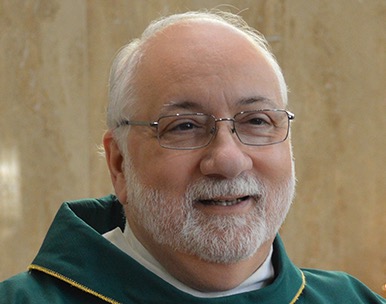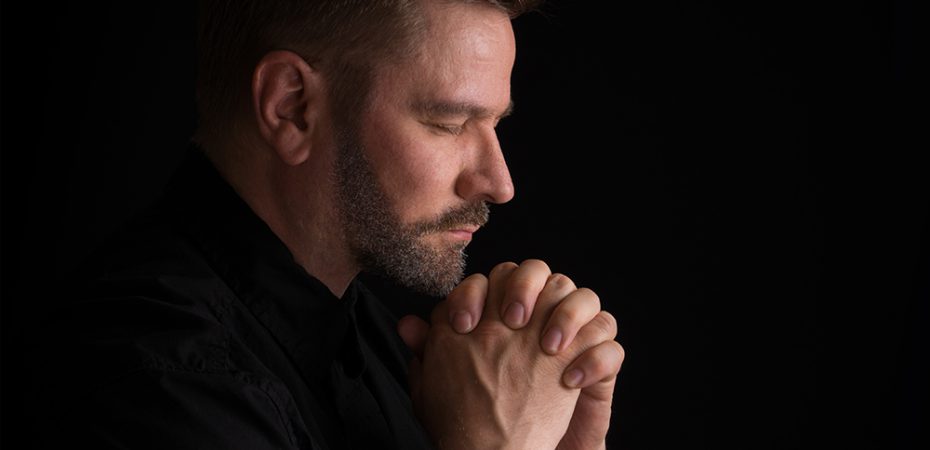Spirituality of the Diaconate
The deacon relates to God with a growing, intimate communion
Deacon Dominic Cerrato Comments Off on Spirituality of the Diaconate
 When the term “diaconal spirituality” is used in popular literature, its meaning is often assumed. The context of its usage implies the way a deacon draws close to Christ through such practices as lectio divina, various devotions, spiritual direction, frequent confession and Eucharistic adoration. While all of these have great merit in cultivating the interior life, in themselves they do not constitute a diaconal spirituality as such, but instead elements in the spirituality of a deacon. This may seem like a distinction without a difference, but, upon closer examination, the difference is vast.
When the term “diaconal spirituality” is used in popular literature, its meaning is often assumed. The context of its usage implies the way a deacon draws close to Christ through such practices as lectio divina, various devotions, spiritual direction, frequent confession and Eucharistic adoration. While all of these have great merit in cultivating the interior life, in themselves they do not constitute a diaconal spirituality as such, but instead elements in the spirituality of a deacon. This may seem like a distinction without a difference, but, upon closer examination, the difference is vast.
To be sure, a deacon may and should participate in these devotions, but it’s not only that he participates, but rather how this participation reflects his configuration to Christ the Servant. All of these devotions are a way of relating to God, and that relationship changed radically on the day of his ordination. Because he “is” deacon, because he has been indelibly marked as Christ the Servant, he now has the capacity of relating to God in a particular way, in a diaconal way. Since this relationship is contextualized as a gift of divine love outpoured, and since love cannot remain static, the essential characteristic and distinctive feature of diaconal spirituality is to grow in more intimate communion with Christ the Servant. In many respects, this not only defines diaconal spirituality, but the deacon himself, and becomes the source and strength of his ministry. It imbues his ministry with a particular quality, the quality of a servant who loves his Master tenderly.
The above definition uses the term “diaconal spirituality” in a collective sense. What is really meant is “diaconal spiritualities.” There’s not any one way to grow in greater communion with Christ the Servant, but many. As we have already seen, intimate communion implies a relationship and a relationship always implies the union of two or more individuals. While Christ the Servant is a constant in the relationship, deacons are not. They represent a widely diverse group and, while there are many commonalities among them, the manner in which they encounter Christ, and allow him to accompany them on their vocational journey, will differ. Just as no one person can image God, so no one person can incarnate Christ the Servant. The diversity of diaconal spiritualities reflects the diversity of men called to sacred service in the diaconate, and only together do they reveal Christ the Servant. In this way, they enable the ministry to permeate and penetrate all aspects of society.
The uniqueness of diaconal spirituality, what sets it apart from other spiritualities, lies in the deacon’s mystical identification with Christ the Servant. While all are called to serve by virtue of their baptism, the deacon is called to be an icon of Christ the Servant, and in this respect he acts in the person of that same Christ who came not to be served, but to serve. This grounds diaconal spirituality in a specific kind of vocational relationship with God. It’s a relationship that begins as an unfulfilled calling, beckoning him to a life lived in sacred ecclesial service. It’s realized when his bishop says the prayer of ordination and lays hands upon him. It continues throughout his life as he exercises his diaconal ministry. Because he “is” deacon by virtue of his ordination, every act that proceeds from him has the capacity to be diaconal. I say “has the capacity,” because the deacon needs to be intentional about being a deacon. Ordination does not take away the effects of original sin nor our free will, which, if it’s truly free, maintains the capacity to sin. This intentionality is not limited to formal ministry per se, but to all aspects of his life, including and especially his wife and his family. Indeed, he must be first a deacon to them as father and husband before he can be a deacon to others.
Diaconal spirituality, in its many forms, seeks to grow the deacon in the ways of perfection enabling him to incarnate Christ more effectively. By sensitizing him to God’s presence in those he serves and responding in love he extends the hand of Christ to those in need. In this very process he is transformed, since it’s impossible to touch without being touched.
DEACON DOMINIC CERRATO, Ph.D., is editor of The Deacon and the director of diaconal formation for the Diocese of Joliet, Illinois. He is the founder of Diaconal Ministries, where he gives national presentations and retreats to deacons and diaconal candidates. Follow him on Facebook to continue the conversation.





